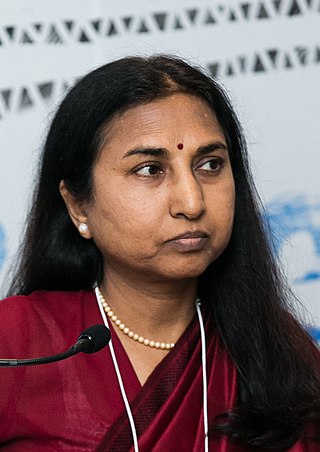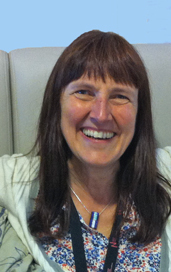Related Research Articles

Feminist economics is the critical study of economics and economies, with a focus on gender-aware and inclusive economic inquiry and policy analysis. Feminist economic researchers include academics, activists, policy theorists, and practitioners. Much feminist economic research focuses on topics that have been neglected in the field, such as care work, intimate partner violence, or on economic theories which could be improved through better incorporation of gendered effects and interactions, such as between paid and unpaid sectors of economies. Other feminist scholars have engaged in new forms of data collection and measurement such as the Gender Empowerment Measure (GEM), and more gender-aware theories such as the capabilities approach. Feminist economics is oriented towards the goal of "enhancing the well-being of children, women, and men in local, national, and transnational communities."
Liberal feminism, also called mainstream feminism, is a main branch of feminism defined by its focus on achieving gender equality through political and legal reform within the framework of liberal democracy and informed by a human rights perspective. It is often considered culturally progressive and economically center-right to center-left. As the oldest of the "Big Three" schools of feminist thought, liberal feminism has its roots in 19th century first-wave feminism seeking recognition of women as equal citizens, focusing particularly on women's suffrage and access to education, the effort associated with 19th century liberalism and progressivism. Liberal feminism "works within the structure of mainstream society to integrate women into that structure." Liberal feminism places great emphasis on the public world, especially laws, political institutions, education and working life, and considers the denial of equal legal and political rights as the main obstacle to equality. As such liberal feminists have worked to bring women into the political mainstream. Liberal feminism is inclusive and socially progressive, while broadly supporting existing institutions of power in liberal democratic societies, and is associated with centrism and reformism. Liberal feminism tends to be adopted by white middle-class women who do not disagree with the current social structure; Zhang and Rios found that liberal feminism with its focus on equality is viewed as the dominant and "default" form of feminism. Liberal feminism actively supports men's involvement in feminism and both women and men have always been active participants in the movement; progressive men had an important role alongside women in the struggle for equal political rights since the movement was launched in the 19th century.

Dame Marilyn Joy Waring is a New Zealand public policy scholar, international development consultant, former politician, environmentalist, feminist and a principal founder of feminist economics.
Gender equality, also known as sexual equality or equality of the sexes, is the state of equal ease of access to resources and opportunities regardless of gender, including economic participation and decision-making; and the state of valuing different behaviors, aspirations and needs equally, regardless of gender.

Devaki Jain is an Indian economist and writer, who has worked mainly in the field of feminist economics. In 2006 she was awarded the Padma Bhushan, the third-highest civilian award from Government of India, for her contribution to social justice and the empowerment of women.
Gender mainstreaming is the public policy concept of assessing the implications for people of different genders of a planned policy action, including legislation and programmes. Mainstreaming offers a pluralistic approach that values the diversity among people of different genders.

The International Center for Research on Women (ICRW) is a non-profit organization with offices in Washington, D.C., United States, New Delhi, Ranchi, and Jamtara, India, Nairobi, Kenya, and Kampala, Uganda. ICRW works to promote gender equity, inclusion and shared prosperity within the field of international development.

Bina Agarwal is an Indian development economist and Professor of Development Economics and Environment at the Global Development Institute at The University of Manchester. She has written extensively on land, livelihoods and property rights; environment and development; the political economy of gender; poverty and inequality; legal change; and agriculture and technological transformation.

Geeta Rao Gupta is a leader on gender, women's issues, and HIV/AIDS who is serving as United States Ambassador-at-Large for Global Women's Issues since May 2023. She previously served as executive director of the 3D Program for Girls and Women and senior fellow at the United Nations Foundation since 2017. She is frequently consulted on issues related to AIDS prevention and women's vulnerability to HIV and is an advocate for women's economic and social empowerment to fight disease, poverty and hunger.

Unpaid labor or unpaid work is defined as labor or work that does not receive any direct remuneration. This is a form of non-market work which can fall into one of two categories: (1) unpaid work that is placed within the production boundary of the System of National Accounts (SNA), such as gross domestic product (GDP); and (2) unpaid work that falls outside of the production boundary, such as domestic labor that occurs inside households for their consumption. Unpaid labor is visible in many forms and isn't limited to activities within a household. Other types of unpaid labor activities include volunteering as a form of charity work and interning as a form of unpaid employment. In a lot of countries, unpaid domestic work in the household is typically performed by women, due to gender inequality and gender norms, which can result in high-stress levels in Women attempting to balance unpaid work and paid employment. In poorer countries, this work is sometimes performed by children.
Gender and development is an interdisciplinary field of research and applied study that implements a feminist approach to understanding and addressing the disparate impact that economic development and globalization have on people based upon their location, gender, class background, and other socio-political identities. A strictly economic approach to development views a country's development in quantitative terms such as job creation, inflation control, and high employment – all of which aim to improve the ‘economic wellbeing’ of a country and the subsequent quality of life for its people. In terms of economic development, quality of life is defined as access to necessary rights and resources including but not limited to quality education, medical facilities, affordable housing, clean environments, and low crime rate. Gender and development considers many of these same factors; however, gender and development emphasizes efforts towards understanding how multifaceted these issues are in the entangled context of culture, government, and globalization. Accounting for this need, gender and development implements ethnographic research, research that studies a specific culture or group of people by physically immersing the researcher into the environment and daily routine of those being studied, in order to comprehensively understand how development policy and practices affect the everyday life of targeted groups or areas.

Ailsa McKay was a Scottish economist, government policy adviser, a leading feminist economist and Professor of Economics at Glasgow Caledonian University.

Margunn Bjørnholt is a Norwegian sociologist and economist. She is a research professor at the Norwegian Centre for Violence and Traumatic Stress Studies (NKVTS) and a professor of sociology at the University of Bergen. Her research has focused on financial institutions, management and working life and later on gender equality, migration and violence. She has also worked as a consultant, a civil servant, served as an expert to the European Commission and been president of the Norwegian Association for Women's Rights.
Naila Kabeer is an Indian-born British Bangladeshi social economist, research fellow, writer and Professor at the London School of Economics. She was also president of the International Association for Feminist Economics (IAFFE) from 2018 to 2019. She is on the editorial committee of journals such as Feminist Economist, Development and Change, Gender and Development, Third World Quarterly and the Canadian Journal of Development Studies. She works primarily on poverty, gender and social policy issues. Her research interests include gender, poverty, social exclusion, labour markets and livelihoods, social protection, focused on South and South East Asia.

Women's empowerment may be defined in several ways, including accepting women's viewpoints, making an effort to seek them and raising the status of women through education, awareness, literacy, and training. Women's empowerment equips and allows women to make life-determining decisions through the different societal problems. They may have the opportunity to re-define gender roles or other such roles, which allow them more freedom to pursue desired goals.

Kirthi Jayakumar is a peace educator, a women, peace, and security and feminist foreign policy practitioner, lawyer and writer. She is a Commonwealth Scholar, a Vital Voices (VV) Lead Fellow, a VV Engage Fellow, a Local Pathways Fellow, and a World Pulse Impact Leader. Kirthi is also a Fellow of the Royal Society of Arts. She served as an advisor to the G7 through the Women7 under the German Presidency of the G7 in 2022, and currently under the Japanese Presidency of the G7 in 2023, and was named as one of UN Women Asia Pacific's 30 for 2030.

Ruth Halperin-Kaddari is an Israeli legal scholar and international women's rights advocate who is known for her work on family law, feminist legal theory, women's rights in international law, and women and religion. She was a member of the United Nations Committee on the Elimination of Discrimination against Women from 2006 to 2018, and was the committee's vice chair during several terms. She is Professor of Law at the Bar-Ilan University and is the founding Academic Director of the Ruth and Emanuel Rackman Center for the Advancement of the Status of Women. She is also involved in international academic collaborations on the theme of women, state, and religion, and participates in international litigations as an expert on Israeli family law.

Shahra Razavi is an Iranian-born academic and senior United Nations official specialising in gender and social development. A graduate of the London School of Economics and Oxford University, Razavi is currently Director of the Social Protection Department of the International Labour Organisation in Geneva, Switzerland.
Hayat Mirshad is a Lebanese feminist journalist, activist, and co-founder of the non-profit feminist collective FE-MALE.

Emma Ritch was a Scottish women's rights campaigner who was the executive director of Engender, a feminist policy organisation working on women’s social, economic, and political equality in Scotland. She had been working there for 13 years when she died on 9 July 2021.
References
- ↑ "BBC 100 Women 2019: Who is on the list this year?". BBC. 16 October 2019. Retrieved 28 November 2023.
- ↑ "Expert's take: Making unpaid work visible creates livelihoods for rural women". UN Women. 8 March 2017. Retrieved 28 November 2023.
- ↑ "ICRW celebrates top 10 moments of 2019" . Retrieved 28 November 2023.
- ↑ "Women's Leadership in the Development Sector" (PDF). pp. 131–132. Retrieved 28 November 2023.